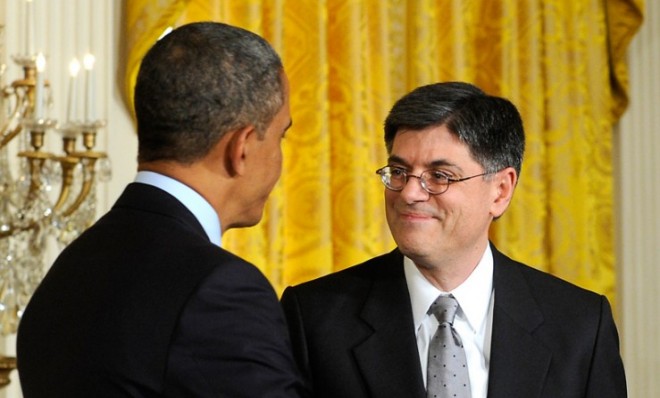Will Jack Lew succeed at Treasury?
The policy wonk is likely to become the president's point man on tax, spending, and entitlement negotiations. Not everyone is happy about that

A free daily email with the biggest news stories of the day – and the best features from TheWeek.com
You are now subscribed
Your newsletter sign-up was successful
Jack Lew's nomination as the new Treasury secretary does "not bode well for either the business community or, ironically, the White House," said Steve Liesman at CNBC. The White House chief of staff has previously run the Office of Management and Budget twice, under both Clinton and Obama. But that's not the kind of experience to convince business executives that he has "an allegiance to something other than the White House and its political ambitions." Obama has a real problem with Wall Street, and the current Treasury secretary, Timothy Geithner, has the expertise "to bridge the gap." Lew does not. "Obama may have missed an opportunity to add a voice with market credibility to his team."
Lew may be no Geithner, said Robert Scheer in The Nation. But for anyone who wants to see curbs on Wall Street's unfettered greed, that's "scant cause for cheer." When he worked at Citigroup, from 2006 to 2008, Lew ended up overseeing an alternative investment unit that contributed to the bank's failure and set the stage for its $45 billion taxpayer bailout. In 2008 alone, he was "raking in more than $2 million in salary and bonuses." And at his last confirmation hearing, in 2010, Lew discounted the importance of regulation, revealing a "myopic view of the origins of the economic meltdown." That might matter more now than it once did, said Matthew Zeitlin at The Daily Beast. The Dodd-Frank legislation makes the Treasury secretary one of the nation's most important financial regulators. "And Lew doesn't have much regulatory experience."
My concern isn't that Lew will be too much or not enough of a friend to Wall Street, said Heidi Moore in Britain's Guardian. "He's much more likely to entirely forget about Wall Street." As a self-proclaimed numbers man, his strengths "are in the molasses-speed world of government deficits and budget planning, where costs are calculated in increments of a year or a decade." Indeed, by nominating Lew, President Obama has clearly signaled that the financial markets "are not a priority." That's not the only signal he's sending, said Joshua Green in Bloomberg Businessweek. "Putting Lew at Treasury suggests that Obama intends to drive a hard bargain with Republicans on tax, spending, and entitlement issues." Lew will be there not to deal with Wall Street, but to be the "point man in ongoing budget and entitlement-reform negotiations." However Wall Street feels about Lew's nomination, the Republicans hate it. And Obama clearly "isn't particularly concerned about how they feel about his choice."
The Week
Escape your echo chamber. Get the facts behind the news, plus analysis from multiple perspectives.

Sign up for The Week's Free Newsletters
From our morning news briefing to a weekly Good News Newsletter, get the best of The Week delivered directly to your inbox.
From our morning news briefing to a weekly Good News Newsletter, get the best of The Week delivered directly to your inbox.
A free daily email with the biggest news stories of the day – and the best features from TheWeek.com
-
 6 of the world’s most accessible destinations
6 of the world’s most accessible destinationsThe Week Recommends Experience all of Berlin, Singapore and Sydney
-
 How the FCC’s ‘equal time’ rule works
How the FCC’s ‘equal time’ rule worksIn the Spotlight The law is at the heart of the Colbert-CBS conflict
-
 What is the endgame in the DHS shutdown?
What is the endgame in the DHS shutdown?Today’s Big Question Democrats want to rein in ICE’s immigration crackdown